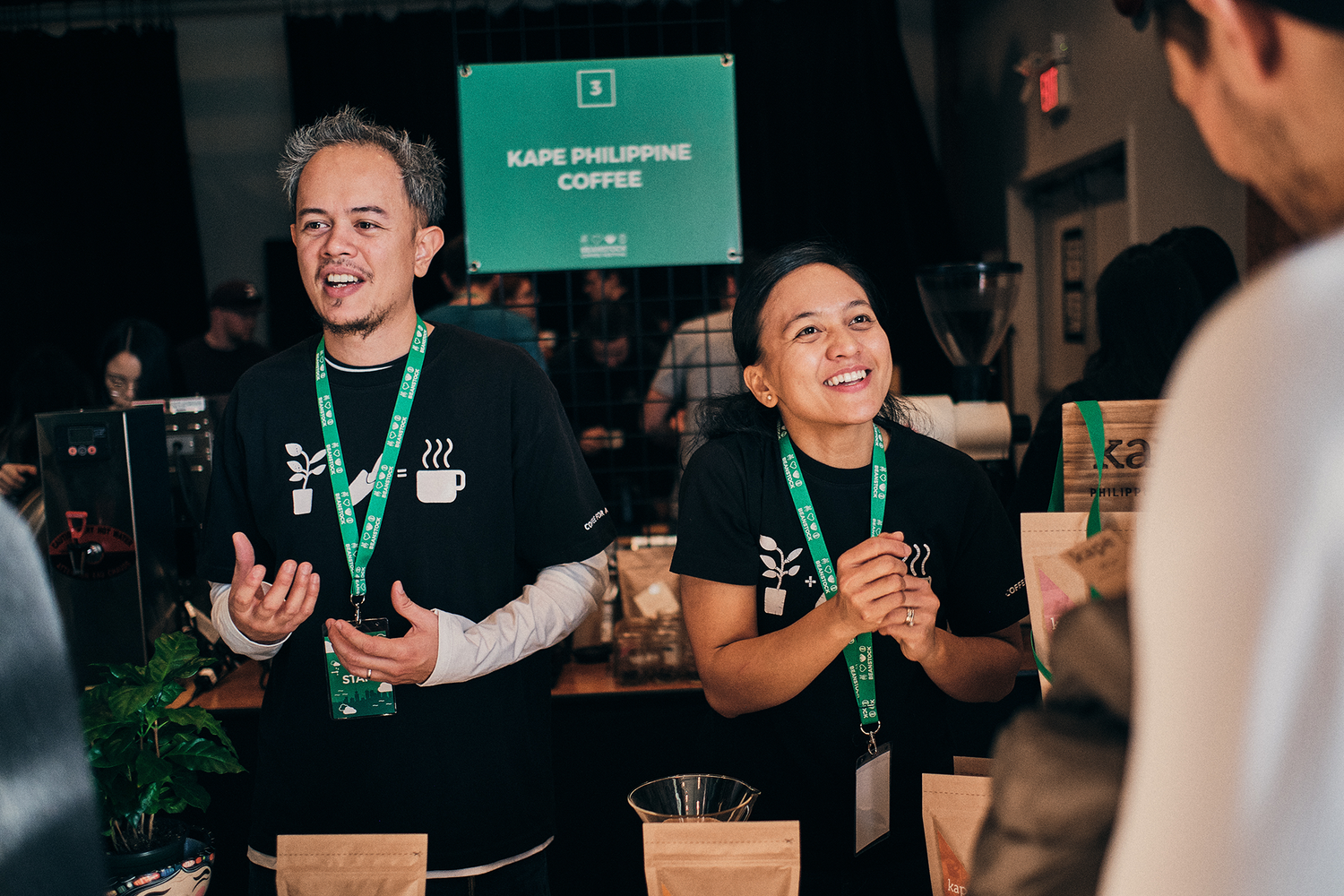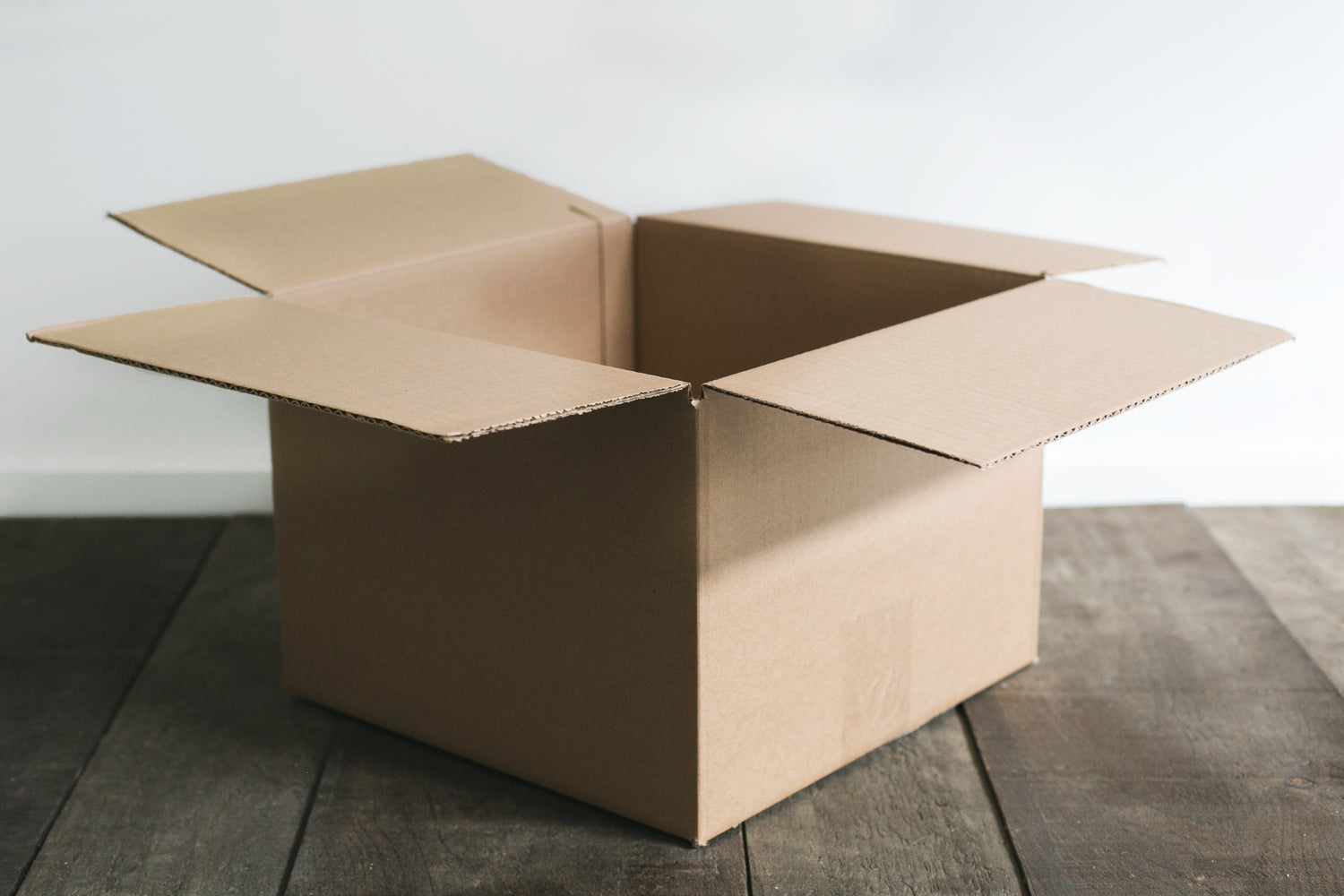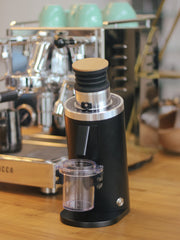The World of Filipino Coffee: An Interview with Kapé Coffee Roasters

As we celebrate Filipino Heritage Month this June, we are excited to present an in-depth interview with Iona, the passionate founder of Kapé Coffee. Kapé Coffee is Vancouver’s first and only Philippine coffee roaster, dedicated to bringing the rich and vibrant flavours of Filipino coffee to the Canadian market while supporting Indigenous coffee farmers back home.
Iona’s journey is one of dedication, culture, and community. Nearly a decade ago, she moved to Vancouver from the Philippines with a strong desire to stay connected to her heritage. Recognizing an opportunity to introduce Philippine specialty coffee with a social purpose to the city, she founded Kapé Coffee. Her mission is to represent Philippine coffee and support underrepresented women of colour in the industry.
Join us as we learn about their inspiring journey, the challenges they’ve overcome, and the impact they’re making in both the Canadian and Philippine coffee communities. Plus, let’s also have a bit of fun as we close the interview with some light-hearted questions to get to know Iona better!
1. Can you tell us about the origins of Kapé Coffee and what inspired you to start this venture?
Iona moved to Vancouver from the Philippines in 2015 with a deep desire to stay connected to her heritage. “I knew in my heart that I would like to stay connected to my heritage,” she shares. Recognizing the potential to introduce specialty coffee with a social purpose to Vancouver, she saw an opportunity to represent her culture through a little-known coffee origin. “I knew Philippine coffee can and does have a place in the city I now call home.” In addition, Iona couldn’t help but notice the lack of representation in the industry, particularly for women of colour. She explains, ‘Women, mostly women of colour, are still so underrepresented, and our goal is for Kapé to contribute positively to the conversation”
Iona’s passion for coffee began early, with an obsession that saw her drinking six cups a day. Since 2003, Iona has worked in the Philippine coffee industry, focusing on building community with coffee farmers. She was deeply inspired to see that for them, coffee was more than just a livelihood – it was their life. She recognized the transformative power of creating relationships that go beyond business, aiming for sustainability and making a positive impact.
In 2016, Iona joined Groundswell, a social entrepreneurship community that gave her the opportunity to bring Philippine specialty coffee to Canada. At Groundswell’s Granville Island Test Market, people were “happily surprised to learn that the Philippines grew coffee, and that it was good, delicious coffee, not the instant or 3-in-1 coffees that they usually hear or know about”, Iona says.
In 2019, Kapé Coffee joined the Vancouver Farmers Markets. However, the pandemic in 2020 prompted a shift to e-commerce and the pursuit of partnerships with values-aligned businesses across Canada and the US. This transition enabled them to continue their mission and expand their reach.
2. How does Kapé Coffee support the livelihoods of Indigenous coffee farmers in the Philippines?
One of the main goals of Kapé Coffee is to foster sustainable income generation for the farmers they work with. More than an ideology, Iona describes it as a commitment. Supporting the livelihoods of Indigenous coffee farmers is about creating opportunities and stability for generations to come.
Financially supporting farmers for Kapé comes with a philosophy of direct sourcing, allowing them to “earn significantly more (up to four times!) then they would in the usual market.” To achieve this, you have to take into account the cost of production to set a fair purchase price, says Iona. By listening to the needs of their partner farmers and exploring ways to collaborate, Kapé goes beyond simple coffee purchasing to establish long-term, beneficial partnerships. They acknowledge the financial challenges of a single annual harvest and support farmers through advance-buying and multi-year collaboration.
Iona shares that by intentionally giving opportunities to smallholder farmers or those just starting out and committed to quality and improvement, Kapé fosters the growth of coffee farming communities. One practical way Kapé assists is by introducing their farmer partners to specialty coffees from around the world, exciting them about different taste profiles and providing feedback on their coffee’s performance alongside other specialty coffees. Through these workshops, farmers gain valuable insights into enhancing cup quality. Iona emphasizes, “We are all part of a bigger movement to put Philippine specialty coffee on the global stage, and elevating each other is a step closer to the goal.”
3. What makes Philippine coffee unique compared to other coffee-growing regions around the world?
While every coffee-growing region has its unique features, certain elements make Philippine coffee stand out. Iona explains, “Our country’s coffee history, diverse flavour profiles from different regions and varietals, and the cultural significance of coffee make it quite unique.”
Historically, the Galleon Trade introduced coffee to the Philippines, but recent discoveries suggest that coffee was present before the Spaniards arrived. Iona notes, “In Indigenous communities, a home is not complete without coffee trees growing in one’s backyard.”
The Philippines is one of the few countries that produce all four major varieties of coffee: arabica, robusta, liberica, and excelsa. “Each region has its own microclimates and soil compositions, resulting in a wide range of flavour profiles,” she says. For example, Benguet’s arabica beans are known for their mild acidity and subtle sweetness, while Mindanao’s arabica is noted for its floral and fruity profiles. Robusta offers bold, earthy notes, and Philippine liberica, or ‘barako,’ provides a strong, full-bodied brew often enjoyed with brown sugar.
Iona concludes, “As a coffee origin, the Philippines offers a broad spectrum of taste profiles, ensuring there’s something for everyone to enjoy and appreciate.”

4. Could you share a story about one of the farmers you work with and how their life has been impacted by your partnership?
“I’d love to share! Ate Marivic has been our friend and partner even before Kapé was a brand,” Iona begins. They met at the SCA Coffee Expo in 2018, where Iona was so impressed with her coffee that she promised to visit her farm in Davao del Sur. “She was so surprised that I traveled there alone! I didn’t hesitate because her coffee was excellent, and her dedication to farming and processing was inspiring.”
In early 2019, Kapé began sourcing Marivic’s coffee. At that time, her family was transitioning from vegetable farming to full-time coffee production. “With meager earnings from selling root crops, Ate Marivic saw how coffee farming could transform their livelihood,” Iona explains. By sourcing directly from her, Kapé enables Marivic to earn more than typical transactions, improving her family’s quality of life and supporting their children’s education.
“One huge win that epitomizes our mission is the inspiring journey of Ate Marivic’s daughter, who has embraced coffee farming, following in her mother’s footsteps,” Iona concludes.
5. What challenges have you faced in bringing Philippine specialty coffee to the Canadian market, and how have you overcome them?
Iona describes her journey with Kapé Coffee as quite the adventure. “We started by bringing coffee samples in our backpacks and luggage, then officially registered as a social venture, applied for export accreditation from the Philippines, gained confidence and self-funding, and navigated logistical misadventures. As a small but mighty team, we continually learn and lean on our community for mentorship, hands-on support, and practical advice.”
Being new to Vancouver, Iona initially had no idea where to begin. She found her footing with the help of Groundswell, a community of like-minded and like-hearted individuals creating purpose-led businesses aligned with their values. This support was crucial in navigating the early challenges.
Iona’s initial idea was to import green coffee, but selling directly to roasters and companies unfamiliar with single-origin coffee from the Philippines proved difficult. Recognizing that the venture encompassed more than just coffee—it also involved farmers’ stories and sustainable livelihoods—she set out to create a brand that respected the dedication of coffee farmers and their families, celebrated relationships, and kept a meaningful link to her heritage. “We wanted Kapé to stand for more than just great coffee; we wanted it to reflect the spirit and resilience of the communities that produce it,” Iona explains.
With the help and support of family, friends, and the coffee community, Kapé continues to positively impact local coffee farming communities in the Philippines. Iona views this support as essential to their ongoing success and influence.
6. What role does Filipino culture play in your brand and how do you incorporate it into your products and operations?
Everything about Kapé is deeply rooted in Filipino culture, with celebrating their heritage being a fundamental principle. Through Kapé, they connect with their roots in a tangible way, and it’s a pleasure to share this cultural gift with everyone.
Their packaging showcases the baybayin (Filipino Indigenous script) characters for kapé, and they also describe their coffee’s tasting notes using Filipino snacks from their childhood. For example, bags have tasting notes of tsokolate-ah, tangelo, biko, and more. These descriptions have sparked many enjoyable conversations, especially with Filipino-Canadians. It’s not only about nostalgia; it’s about providing a different perspective on taste for a typically Western-centric palate.
Iona shares, “The best conversations happen over coffee and food. Our story is all about making meaningful connections through coffee and recognizing it as a medium to build community and create sustainable livelihoods.” This embodies the Filipino concept of kapwa, the belief in seeing yourself in others and taking care of each other.
7. What are your goals for Kapé Coffee in the coming years, and how do you plan to expand awareness of Philippine specialty coffee?
In the coming years, Kapé plans to strengthen sourcing partnerships with Indigenous and women coffee farmers while expanding distribution channels across Canada and the US.They aim to collaborate with a broader community of coffee farmers in more regions of the Philippines, assisting them in expanding production, enhancing post-harvest practices, and improving coffee quality. This will lead to better income for smallholder farmers and allow Kapé to bring exceptional coffee to their North American community. Additionally, they are creating opportunities to partner with roasters on a sustainable green coffee program.
Iona says, “We are excited about being part of the community and sharing experiences with coffee enthusiasts through cuppings, pop-up events, and other activities.” These initiatives are part of Kapé’s mission to raise awareness and appreciation for Philippine specialty coffee.
8. If your coffee had a theme song, what would it be?
“It’s gotta be ‘Toyang,’ a fun, quirky song by the Eraserheads, a Filipino alternative rock band sometimes referred to as The Beatles of the Philippines!”
The song title is a nod to Nat King Cole’s 1951 song ‘Too Young,’ and it features elements reminiscent of childhood tunes, food, and catchy lyrics in Filipino, English, and Ilocano (a language from northern Philippines, where Iona’s family is from). She adds, “I am now having ube cake for merienda and sipping Kuya Onad’s Kapé with this song playing in the background.”
9. What’s the funniest or most unusual coffee-related experience you’ve had since starting Kapé Coffee?
Iona shares, “My fascination with coffee began in my childhood kitchen in Tabuk, Kalinga. Instead of trendy cafes, I started with native coffee mixed with ‘tutong’ (toasted rice) and brown sugar. That was my favorite breakfast or morning snack, and it brought me pure joy.”
This unconventional beginning not only refined her palate but also instilled a deep appreciation for the surprising nuances of coffee. She reflects, “It’s a memory that always brings a smile to my face. My mom tells me now that it’s rice coffee, but to me, it was the real thing!”
10. What’s your favourite drink other than coffee?
“Buko or coconut water, straight from the shell! This is my ultimate thirst quencher and energy replenish-er. Oh, and a really good matcha latté.”
We hope this interview has given you a deeper understanding of the unique qualities of Philippine coffee and the inspiring mission of Kapé Coffee. Thank you for joining us in celebrating Filipino Heritage Month and supporting the stories and livelihoods of Indigenous coffee farmers.







